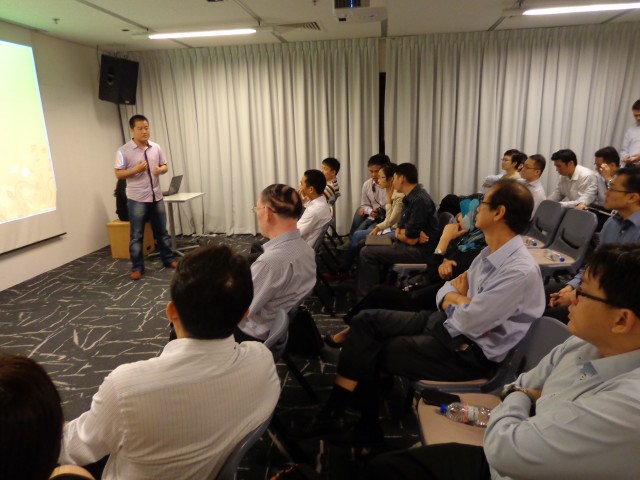BASF, the world’s leading chemical company, together with Lien AID, a non-profit organization with a strong track record in implementing sustainable water infrastructure projects for poor rural villages, celebrated the successful launch of a community-owned water treatment plant project in Kampong Chhnang Province, Cambodia. The project aims to improve the access to affordable clean water for 620 villagers residing on the Tonle Sap river.
In this unique partnership, Lien AID, which has already established 18 successful community water enterprises across 29 villages in two provinces, will provide project mentoring based on their strong experience. Five BASF management trainees are acting as “business consultants” for the project, contributing innovative ideas and at the same time gaining hands-on social interaction experience through their involvement from needs assessment to project implementation.
Mr Dean Draper, Managing Director, ASEAN Sub-region, BASF South East Asia Pte Ltd, said, “By 2050, more than nine billion people will live on this planet. While the planet’s resources are finite, this will pose huge challenges. BASF sees innovations powered by chemistry as enabler in addressing the challenges in resources, environment and climate – in this case, access to clean water – becoming increasingly important.
A joint initiative between Lien AID and BASF, the project is a platform for the company to develop and implement a water-treatment infrastructure in Kampong Chhnang Province for some 100 households. It adopts a social enterprise model – following the successful launch, a chosen “water entrepreneur” from the village will take over and operate the plant, providing affordable, safe drinking water to the community which lives entirely on the Ton Le Sap Lake. Currently, about 53% of the inhabitants fall sick more than once a month from water borne diseases.
The project was developed as part of a larger existing programme by Lien AID, “The Gift of Water for Floating Communities and Communities on the Floodplains and on Land”. BASF is the first company that Lien AID has partnered with for this programme.
The programme takes a holistic approach that not only addresses the specific needs of the beneficiaries but also lays the foundation for long-term benefits for the communities including community ownership and a gradual change in hygiene behaviors.” said Draper.
“The programme continues to yield positive outcomes, with Lien AID’s first pilot community water enterprise launched in 2010 still benefiting the community. We chose to work with BASF for this particular site as we are impressed by how sustainability is part of the company’s corporate purpose, and the efforts BASF puts into employee development,” commented Mr Koh Lian Hock, Chief Executive Officer, Lien AID.
For BASF, this sustainability project also has an important employee development element under the “Grow ASEAN Graduate Development Program” which was launched in July 2012. Targeting young graduates from different disciplines throughout ASEAN, the 18-month programme aims to identify, develop and retain a diverse group of talents to support the future growth of BASF. The first run saw the recruitment of five trainees from Indonesia, Singapore, Thailand and Vietnam.
“Taking part in such an initiative enables our young colleagues to collaborate across borders as well as provides them with a more holistic personal and career development opportunity”, said Draper. “This project for water is one of the many ways how BASF contributes to conserving resources, ensuring healthy food and nutrition and improving people’s quality of life.”
To learn more about our programmes, take a look at Implement Sustainable Programmes.









